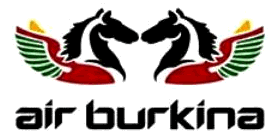 Air Burkina Advances Recovery with Arrival of Second Embraer E190
Air Burkina Advances Recovery with Arrival of Second Embraer E190
The national airline of Burkina Faso is charting a dynamic course in its ongoing recovery, as the imminent arrival of a second Embraer E190 marks a significant milestone in its fleet renewal strategy. The aircraft, currently undergoing final inspections in China, is set to join the airline's base in Ouagadougou in the near future, according to industry insights.
Since the appointment of Azakaria Traoré as CEO in March 2024, Air Burkina has intensified efforts to reposition itself as a resilient and competitive player in the West African aviation market. The addition of another Embraer E190 underscores the airline’s commitment to modernising its fleet and tailoring its services to better meet the region’s evolving travel demands. This move comes at a time when regional carriers face mounting pressures—from fluctuating operating costs to ever-changing regulatory landscapes and increased competition—making adaptability and efficiency more crucial than ever.
The Embraer E190, known for its fuel efficiency, operational flexibility, and passenger comfort, is well-suited for the varied network of short- and medium-haul routes that define West African air travel. By opting for this modern jet, Air Burkina signals its intention to provide reliable, high-quality service while keeping operational costs in check—an imperative for airlines in the current climate. The aircraft’s size and range offer the versatility needed to serve both established and emerging destinations, supporting the airline’s ambition to become a regional connector of choice.
This fleet investment is more than an operational upgrade; it reflects a broader strategic vision to boost connectivity within West Africa and foster economic integration across the sub-region. For African travel professionals, the expansion of Air Burkina’s fleet opens new opportunities to develop competitive itineraries, enhance partnerships, and offer travellers more efficient links between key cities such as Ouagadougou, Abidjan, Bamako, Dakar, and Lomé. The increased capacity also holds promise for stimulating both intra-African tourism and business travel, sectors that are vital to the continent’s growth agenda.
Air Burkina’s measured approach to growth comes at a critical juncture. The airline industry in West Africa continues to grapple with infrastructure challenges, high fuel prices, and the need to comply with evolving safety and security standards. By investing in modern, right-sized aircraft like the Embraer E190, Air Burkina is positioning itself to address these hurdles head-on, ensuring that its operations remain sustainable and competitive over the long term.
The leadership of Azakaria Traoré has brought renewed focus and energy to the carrier’s recovery roadmap. Under his guidance, Air Burkina is not only refreshing its fleet but also fine-tuning its service offering to better reflect the expectations of today’s travellers. This includes greater punctuality, enhanced onboard comfort, and a route network designed to facilitate seamless connections across the Economic Community of West African States (ECOWAS) region. Such improvements resonate strongly with the African travel sector, where reliability and service quality are key differentiators in attracting and retaining customers.
With the impending arrival of the second Embraer E190, Air Burkina is setting the stage for a new phase of operational excellence. The modernisation of its fleet is expected to yield tangible benefits, from lower maintenance costs and improved fuel consumption to increased scheduling flexibility and passenger satisfaction. As regional competition intensifies, these advantages will be critical in enabling Air Burkina to carve out a larger share of the market and respond proactively to shifting demand patterns.
Moreover, the airline’s strategic focus on fleet renewal aligns with a continent-wide movement toward greater aviation sustainability. Newer, more efficient aircraft are central to the goal of reducing environmental impact and complying with international emissions standards. This is particularly relevant as Africa’s air transport sector seeks to balance growth with responsible stewardship of natural resources.
For Africa’s travel industry, developments at Air Burkina serve as both a sign of optimism and a reminder of the importance of ongoing investment in people, product, and infrastructure. As the regional landscape evolves, those carriers able to innovate and adapt will be best placed to harness emerging opportunities and forge new partnerships. The commitment demonstrated by Air Burkina is likely to inspire similar moves by other operators in the region, further enhancing connectivity and service quality across West Africa.
Ultimately, the addition of a second Embraer E190 not only strengthens Air Burkina’s operational capabilities but also signals a renewed confidence in the future of African aviation. By embracing modern technology, focusing on customer needs, and pursuing strategic growth, the airline is well-positioned to thrive amid the challenges and opportunities that lie ahead.
